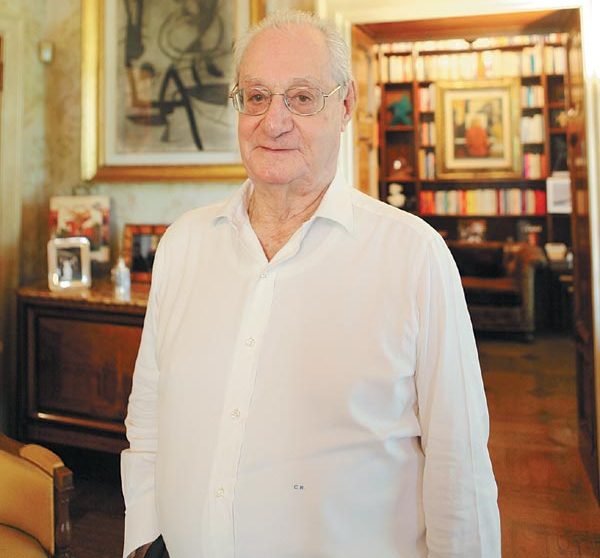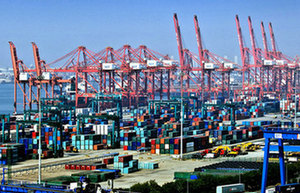|
 |
|
Cesare Romiti says he has devoted "all of his time" to the Italy China Foundation. [Photo/China Daily] |
Retired Italian business titan Cesare Romiti, 91, says one of the most memorable highlights of his career was helping to open a factory to produce Fiat vehicles in Nanjing in 1986.
These days, Romiti appears to be in good shape and works to promote links between China and Italy. Since 2000, he says, he has devoted "all of his time" to the Italy China Foundation, a non-profit group that he founded and dedicated to strengthening business and cultural links between the two countries.
Romiti, an economist who worked for 20 years helping build the auto giant Fiat, led the company from 1996 to 1998 and was known as "Il Duro", or the tough one, when he led the company.
And Romiti has some unequivocal opinions about how Italy's relationship with China could be elevated.
Italy should be following Germany's example in its relationship with China, Romiti says, adding that the Milan 2015 World Expo provides a valuable opportunity to improve ties with China.
Romiti spoke to China Daily in his Milan home, surrounded by tasteful collections of books, paintings and other artwork. He appears to still manage his time carefully, reminding a visitor that he had to catch a train to Rome after the interview.
"Every week, I make a round trip between Rome and Milan," he says.
His foundation's board of directors consists of high-ranking officials and managers representing the Italian government and local authorities, industrial confederations and leading enterprises and financial groups.
Romiti says he regrets that his country's auto industry, while competitive, has not gained as much traction in the enormous Chinese market as German companies.
"From Schroeder to Merkel, Germany's politicians have consistently devoted time and resources to deepen the relationship with China," he says, referring to former chancellor Gerhard Schroeder, who served from 1998-2005, and current Chancellor Angela Merkel.
In addition to Germany's competitiveness in the auto sector, Romiti says it is very clear that this political intervention is fundamental to Germany's success in China. "And this is what Italy should follow."
Some car brands in Italy, one of the world's leading manufacturing powerhouses, do have a respectable presence in China. He cited Fiat and Ferrari, which, respectively, serve ordinary families and the newly rich in China.
Romiti says he first visited
China toward the end of 1970s as a tourist when China was just starting to open its doors to foreign investors.
As China accelerated its opening-up process and started attracting more foreign investment, Romiti participated in a groundbreaking ceremony for the factory making Fiats in Nanjing. In 1985, he helped arrange for China to send about 1,000 engineers and workers to spend a year in Italy learning more about vehicle manufacturing.
He says he learned a great deal and made many contacts in China, including with China's leaders.
"I have seen their lasting commitments in developing relationships with Italy," says Romiti.
Romiti recalls that President Xi Jinping, as vice-president of China at the time, visited Italy in 2011, giving Romiti a chance to exchange ideas with Xi when he gave a speech in Milan. "I saw his leadership charisma, and I also sensed that Xi is keen on forging a stronger relationship with Italy and Europe," Romiti says.
Romiti says the Italian leadership should do the same. He was glad to see Italian Prime Minister Matteo Renzi, 39, pay a three-day visit to Shanghai and Beijing in June, he says.
|
 |
 |
